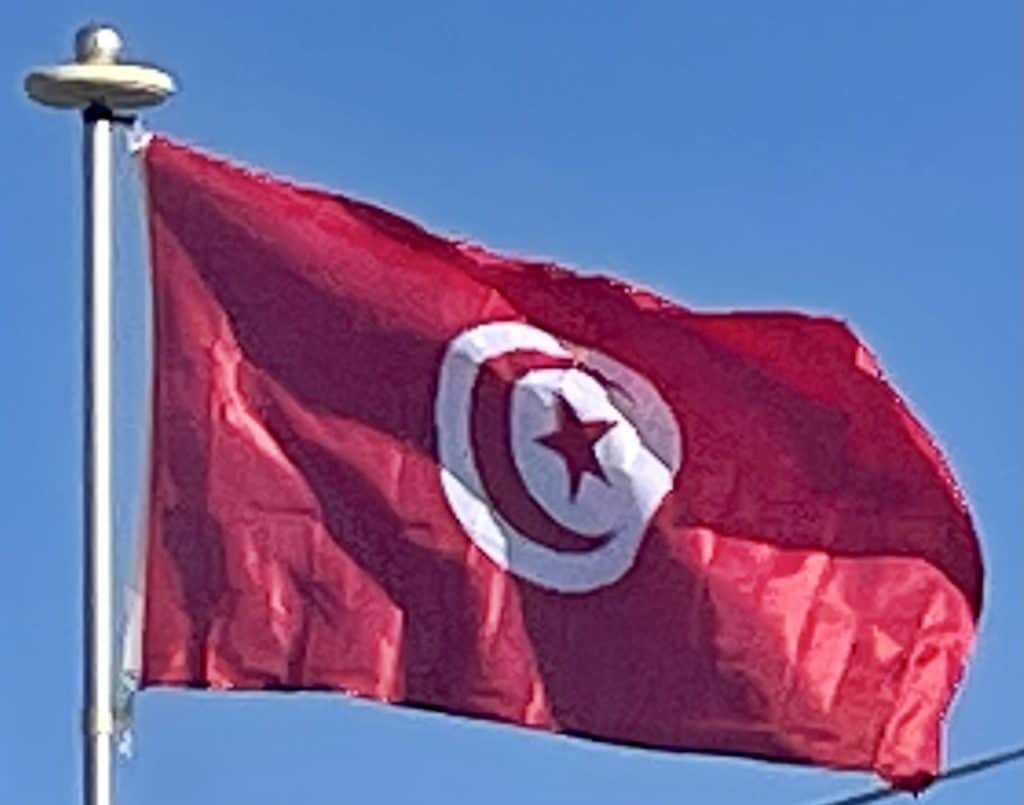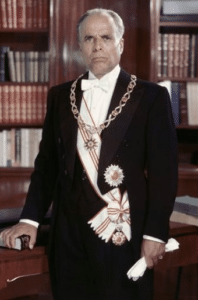During World War II, French Tunisia was ruled by the collaborationist Vichy government located in Metropolitan France. The antisemitic Statute on Jews enacted by the Vichy was also implemented in Vichy Northwest Africa and overseas French territories. Thus, the persecution, and murder of the Jews from 1940 to 1943 was part of the Shoah in France.

Tunisia
British tank moves through Tunis during the liberation, 8 May 1943
Post-independence (1956–2011):
Tunisia achieved independence from France on 20 March 1956 with Habib Bourguiba as Prime Minister. 20 March is celebrated annually as Tunisian Independence Day. A year later, Tunisia was declared a republic, with Bourguiba as the first President. From independence in 1956 until the 2011 revolution, the government and the Constitutional Democratic Rally (RCD), formerly Neo Destour and the Socialist Destourian Party, were effectively one. Following a report by Amnesty International, The Guardian called Tunisia “one of the most modern but repressive countries in the Arab world”.
In November 1987, doctors declared Bourguiba unfit to rule and, in a bloodless coup d’état, Prime Minister Zine El Abidine Ben Ali assumed the presidency in accordance with Article 57 of the Tunisian constitution. The anniversary of Ben Ali’s succession, 7 November, was celebrated as a national holiday. He was consistently re-elected with enormous majorities every five years (well over 80 percent of the vote), the last being 25 October 2009, until he fled the country amid popular unrest in January 2011.

Ben Ali and his family were accused of corruption and plundering the country’s money. Economic liberalization provided further opportunities for financial mismanagement, while corrupt members of the Trabelsi family, most notably in the cases of Imed Trabelsi and Belhassen Trabelsi, controlled much of the business sector in the country. The First Lady Leila Ben Ali was described as an “unabashed shopaholic” who used the state airplane to make frequent unofficial trips to Europe’s fashion capitals. Tunisia refused a French request for the extradition of two of the President’s nephews, from Leila’s side, who were accused by the French State prosecutor of having stolen two mega-yachts from a French marina. Ben Ali’s son-in-law Sakher El Materi was rumored as being primed to eventually take over the country.
Independent human rights groups, such as Amnesty International, Freedom House, and Protection International, documented that basic human and political rights were not respected. The regime obstructed in any way possible the work of local human rights organizations. In 2008, in terms of Press freedom, Tunisia was ranked 143rd out of 173.
